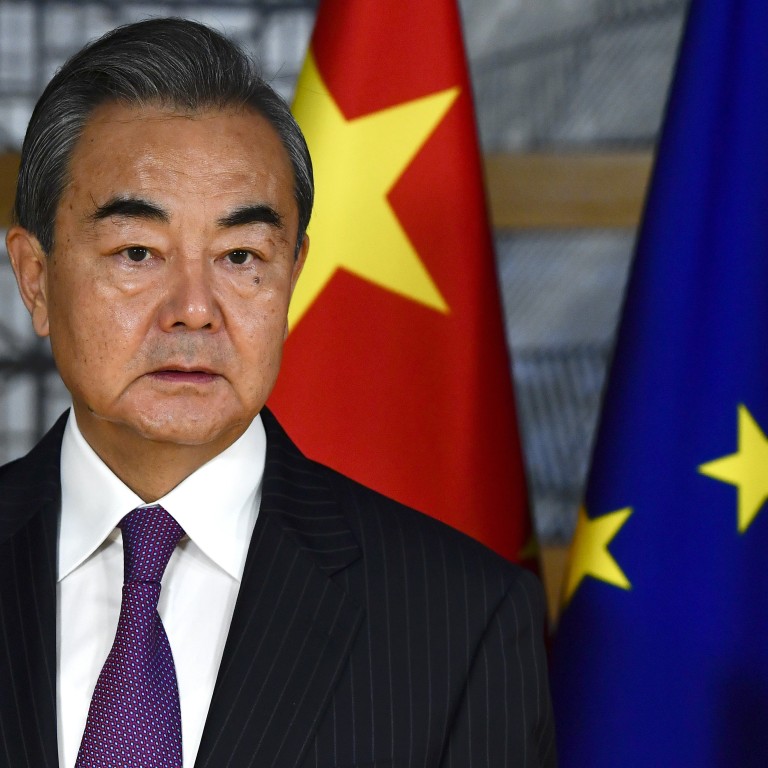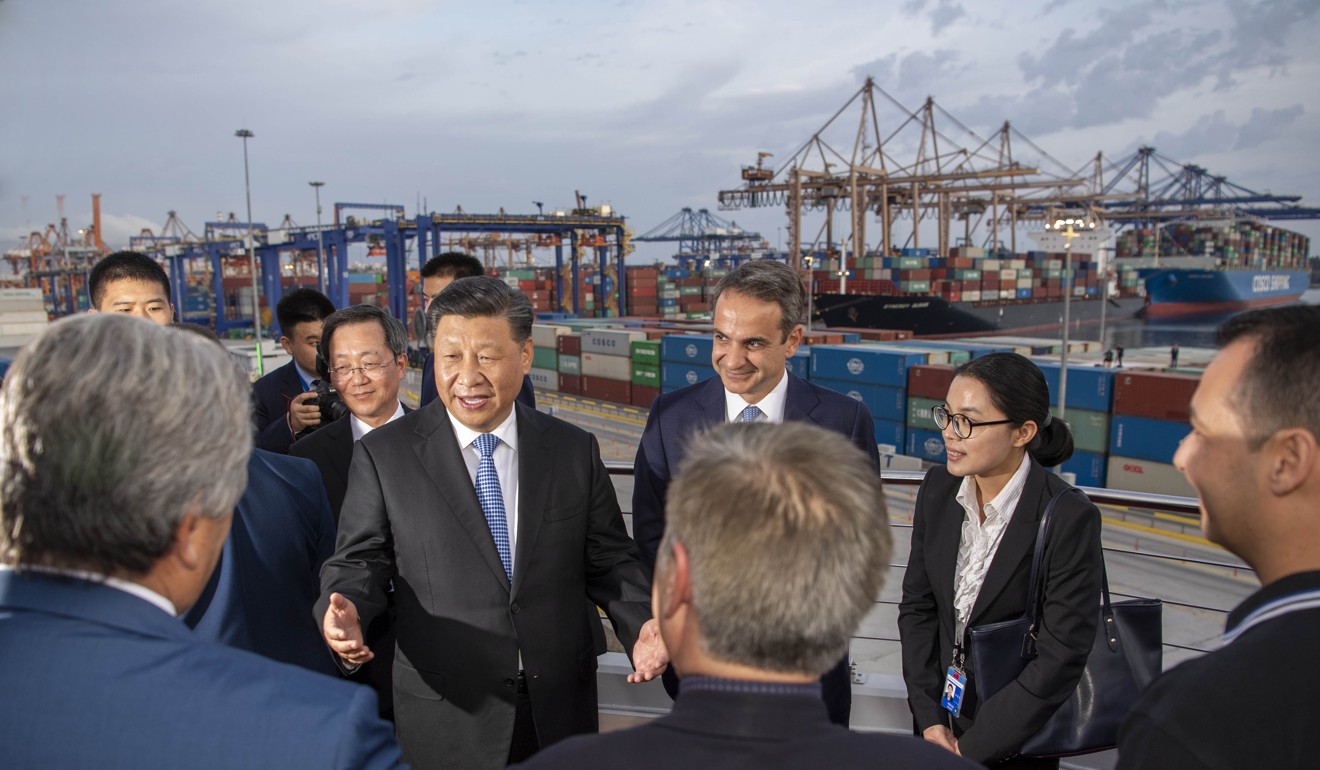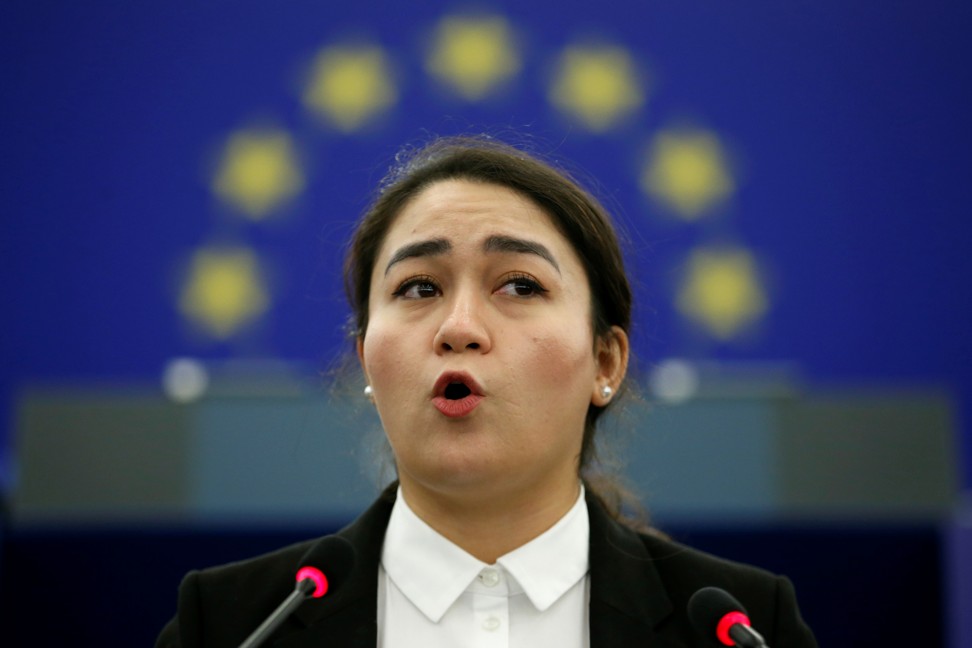
What kind of Europe does China want to deal with: friend, business partner or strategic rival?
- Despite the growing divide between the EU and the US under Trump, Beijing is in danger of losing Europe, which cannot simply ignore human rights issues or China’s failure to open its markets
China is slowly losing Europe. This is happening even though transatlantic relations are at a low point and right when the European Union is finally aiming to become a global geopolitical player.
This means that the next few years will be decisive for China. Over the past three years, even in the context of EU-US disagreements and tensions, China’s ties to Europe have frayed, with the EU branding it “an economic competitor ” and “a systemic rival”, while numerous voices on the European continent are calling for a more confrontational attitude against what they perceive as a rising illiberal adversary.
Beijing has been very slow in understanding and responding to these developments, taking few measures to save its relations with Europe. If current trends continue, China will lose Europe, no matter how strong their economic ties remain.
As its relations with the US are unlikely to go back to their pre-2017 “normal”, China’s leaders will now have to decide what kind of geopolitical Europe they want. Do they want Europe to be a friend, a simple business partner or a geopolitical adversary?
This choice might not be China’s to make, but it can do a great deal to influence it. Yet, to do this, it must abandon its current approach and implement a strategy of understanding and engagement, with a long-term focus.
Why the trade war may soon be the least of China’s worries
Providing this wouldn’t be a compromise, but smart economic policy – it would mean more choices and cheaper services for Chinese consumers, more jobs for Chinese workers and more opportunities for development and innovation for the Chinese economy.
Without reforms and reciprocity, China should expect future EU restrictions on trade, investments, acquisitions or its procurement market, while the EU will gear up to compete against Chinese companies, especially state-owned and subsidised firms.
Providing greater access for European companies would also signal to the US that more things can be won through cooperation than trade wars. Once the investment agreement is signed, Beijing should invite Brussels to begin negotiations on a free-trade pact, fast-tracking them.
What’s ahead for new EU commission as it addresses imbalances in China ties

On the whole, Beijing needs more foresight and a greater willingness to put future benefits above short-term gains and interests. China’s relations with European countries have been affected by numerous developments.
China’s vision of a digital highway into Europe will raise hackles
Take Sweden, an influential EU member, whose ties to China have experienced a downturn in the past few years. The main cause is the fate of Swedish citizen Gui Minhai , who is being detained in China. Chinese leaders might believe this is an internal matter, but they also need to understand that even “internal” affairs can have external consequences.

One person cannot possibly be so important to be worth sacrificing political and economic relations with an entire country. Chinese leaders have to understand that neither Sweden, nor other European countries, can be forced to ignore human rights.
Neither China, nor the Communist Party would have suffered negative consequences if Gui had been freed and allowed to return to Sweden, and the entire saga would have been avoided.
Taking a short-sighted approach to issues will continue to drive Europe and China further apart. Just as Europe sometimes needs to do a better job at understanding China so, too, Beijing must understand the value that European people and governments place on human rights.
Why Trump’s tariffs might not forge a China-EU trade alliance
The situations in Xinjiang and Hong Kong have had a profound effect on China’s image in Europe. It is far from clear that such foreign policy consequences have been considered in the initial stages of Beijing’s decision-making process. China can maintain trade relations with Europe, but it will never become a geopolitical partner if Europeans see it as an authoritarian state abusing human rights and threatening liberal values.
If Chinese leaders want to prevent a future united front between the US and a stronger EU, they need to be bold and develop a new strategy for Europe, focusing on the long-term geopolitical landscape, which is far more important than short-term political and economic interests.
Andrei Lungu is president of The Romanian Institute for the Study of the Asia-Pacific (RISAP)


